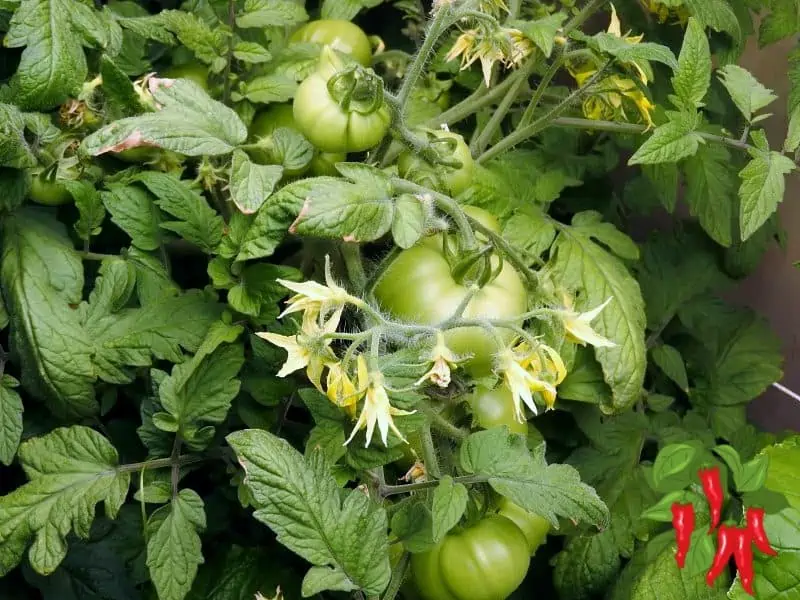This post may contain affiliate links. If you buy something from one of our links we may earn a commission. Thanks

The economic benefits of gardening are vast and often surprising. Gardening isn’t just a hobby; it can save you money and boost your local economy. Let’s dig into how growing your own food can benefit your wallet and community.
Economic Benefits of Gardening
Key Takeaways:
- Gardening can significantly reduce grocery bills.
- Community gardens increase property values and provide revenue opportunities.
- Local food production supports economies and reduces environmental impact.
- Gardening promotes better physical and mental health.
- Urban gardening initiatives have proven economic benefits globally.
Economic Benefits of Gardening: A Comprehensive Guide
Gardening is becoming a favorite activity for many people looking to save money and boost their local economy.
Whether you’re growing tomatoes on your balcony or tending a full vegetable patch, the economic benefits of gardening are impressive and worthwhile to explore. Let’s look into how gardening can be a financial game-changer.
Introducing the Concept of Gardening
Gardening has been around for centuries, providing fresh produce and a sense of satisfaction.
Lately, its popularity has surged as more people realize the numerous benefits it offers.
From small backyard plots to community gardens, gardening is accessible to everyone, regardless of space or experience.
Overview of the Economic Benefits of Gardening
Gardening offers a variety of economic benefits that can positively impact your finances and the local economy. Here are some key points to consider:
-
Cost Savings:
- Growing your own vegetables can significantly cut down on grocery bills.
- Homemade compost reduces the need for expensive fertilizers.
-
Income Generation:
- Selling surplus produce at local markets can provide extra income.
- Starting a small gardening business or offering gardening services can be lucrative.
-
Increased Property Value:
- A well-maintained garden can boost the value of your home.
- Community gardens can enhance the overall attractiveness of a neighborhood, increasing property values.
-
Job Creation:
- Gardening-related activities can create job opportunities in local communities.
- Urban farming initiatives can provide employment and skill-building opportunities.
-
Environmental Savings:
- Reducing food miles by growing locally helps save on transportation costs and reduces carbon footprints.
- Sustainable gardening practices can lower water and energy bills.
Gardening is a simple yet effective way to improve personal finances and contribute to the community’s economic health.
Ready to get started? Let’s dig deeper into how you can reap these benefits in your own garden.
1. Cost Savings from Home Gardening

Gardening isn’t just good for the soul; it’s great for your wallet too.
By growing your own fruits and vegetables, you can cut grocery bills, avoid expensive pesticides, and save on water.
Let’s explore how you can turn your garden into a money-saving machine.
Reducing Grocery Bills
Growing your own fruits and vegetables can lead to significant savings on your grocery bills. Here’s how:
- Homegrown Produce: Pick fresh tomatoes, lettuce, and herbs right from your backyard.
- Weekly Savings: Reduce your food expenses by harvesting your own organic produce.
- Healthier Options: Enjoy the taste and health benefits of freshly picked fruits and veggies.
Avoiding Pesticides and Fertilizers
One of the hidden costs of store-bought produce is the price of pesticides and fertilizers. By growing your own garden, you can:
- Natural Methods: Use compost made from kitchen scraps and yard waste to enrich your soil.
- Chemical-Free Gardening: Implement companion planting and beneficial insects to manage pests naturally.
- Cost Savings: Eliminate the need for expensive chemical fertilizers and pesticides.
Water Efficiency
Watering your garden efficiently can also save you money on utility bills. Consider these techniques:
- Drip Irrigation: Use a drip irrigation system to water plants directly at the roots, reducing waste.
- Rainwater Collection: Set up barrels to collect rainwater for garden use.
- Mulching: Apply mulch to garden beds to retain soil moisture and reduce the need for frequent watering.
Gardening not only brings the joy of growing your own food but also helps you save money in various ways.
Ready to plant your savings? Let’s move on to the next section to learn more!
2. Financial Benefits of Community Gardens
Community gardens do more than beautify neighborhoods; they can boost property values, generate revenue, and create jobs.
These gardens provide economic benefits that ripple through the community, making them a valuable asset for everyone involved.
Increased Property Values
Community gardens can enhance property values and attract businesses by:
- Beautification: Transforming vacant lots into vibrant green spaces.
- Neighborhood Appeal: Creating aesthetically pleasing environments that attract potential buyers.
- Business Attraction: Making areas more attractive for new businesses, boosting local economies.
Revenue Generation
Opportunities to sell surplus produce at local markets and through community-supported agriculture (CSA) programs include:
- Local Markets: Selling fresh, locally grown produce directly to consumers.
- CSA Programs: Providing community members with regular shares of garden harvests in exchange for financial support.
- Income Streams: Creating additional revenue for gardeners and the community.
Job Creation
Creating jobs through sustainable gardening practices and community initiatives involves:
- Employment Opportunities: Generating jobs in garden management, produce sales, and educational programs.
- Skill Development: Offering training in sustainable gardening techniques and small business management.
- Community Engagement: Encouraging local participation and fostering a sense of ownership and pride.
Community gardens not only bring people together but also provide substantial economic benefits, making them a smart investment for any neighborhood.
Ready to learn more? Let’s continue to the next section!
3. Economic Impact on Local Communities

Gardening has a far-reaching economic impact on local communities. From boosting local food production to reducing infrastructure costs, gardens play a crucial role in enhancing the local economy.
Plus, they can even draw in tourists looking for eco-friendly experiences.
Local Food Production
Supporting local economies by reducing reliance on imported produce and boosting local food markets:
- Fresh, Local Produce: Gardens provide fresh, locally grown food, reducing the need for imported produce.
- Economic Boost: Supporting local farmers and markets keeps money within the community.
- Food Security: Increasing the availability of fresh produce locally enhances food security.
Reduction in Infrastructure Costs
How community and home gardens can reduce the need for expensive infrastructure:
- Stormwater Management: Gardens absorb rainwater, reducing the need for costly stormwater systems.
- Energy Savings: Green spaces help cool urban areas, lowering energy costs for cooling buildings.
- Soil Health: Improving soil quality reduces the need for expensive soil treatments and maintenance.
Tourism and Eco-Tourism
Attracting visitors through well-maintained public gardens and eco-friendly practices:
- Tourist Attraction: Beautiful, eco-friendly gardens draw visitors, boosting local tourism.
- Community Pride: Well-maintained gardens create a sense of pride and ownership among residents.
- Educational Opportunities: Gardens offer educational tours and workshops, attracting eco-conscious tourists.
Gardens are not just about growing plants; they are about growing communities and economies.
Let’s explore more ways gardening can benefit us all in the next section!
4. Health and Economic Intersections
Gardening not only boosts your wallet but also your health, which can lead to economic benefits. From improving physical health to enhancing mental well-being, the positive impacts of gardening are extensive.
Improved Health Leading to Lower Healthcare Costs
The link between gardening, improved diet, physical activity, and reduced healthcare expenses:
- Healthy Diet: Growing your own fruits and vegetables encourages a healthier diet rich in fresh produce.
- Physical Activity: Gardening involves physical tasks like digging, planting, and weeding, providing a moderate form of exercise.
- Healthcare Savings: Better diet and regular physical activity can lead to fewer medical visits and lower healthcare costs.
Mental Health Benefits
Reducing stress, anxiety, and depression through gardening can translate into economic benefits due to lower healthcare needs:
- Stress Relief: Spending time in the garden helps reduce stress and promotes relaxation.
- Anxiety and Depression: Gardening has been shown to lower levels of anxiety and depression, improving overall mental health.
- Economic Impact: Reduced mental health issues mean fewer healthcare costs and increased productivity at work.
Gardening offers a holistic approach to health, impacting both physical and mental well-being, which in turn can lead to economic benefits.
Ready to explore more benefits of gardening? Let’s move on to the next section!
5. Entrepreneurial Opportunities
Gardening isn’t just a hobby; it can be turned into a thriving business. From small-scale farming to accessing niche markets, there are numerous entrepreneurial opportunities in gardening.
Small-Scale Farming and Cottage Industries
Turning gardening into a business by producing high-value crops and engaging in local markets:
- High-Value Crops: Focus on growing high-demand produce like heirloom tomatoes, gourmet mushrooms, or specialty herbs.
- Local Markets: Sell your produce at farmers’ markets, local grocery stores, or through a community-supported agriculture (CSA) program.
- Cottage Industries: Create value-added products like jams, pickles, or herbal teas from your garden harvests, adding another revenue stream.
Organic Certification and Niche Markets
Benefits of obtaining organic certification to access premium markets:
- Organic Certification: Ensure your garden practices meet organic standards to obtain certification, making your produce more attractive to consumers seeking organic options.
- Premium Pricing: Certified organic products often fetch higher prices, increasing your profit margins.
- Niche Markets: Tap into specialized markets that prioritize organic and sustainably grown produce, such as health food stores and gourmet restaurants.
Gardening can be a gateway to entrepreneurship, offering various ways to generate income while doing something you love.
Let’s explore even more benefits in the next section!
6. Case Studies and Real-World Examples
Gardening isn’t just a local phenomenon; it’s making a difference worldwide. Let’s look at some urban gardening initiatives and global perspectives that showcase the economic impact of gardening.
Urban Gardening Initiatives
Examples from cities like Seattle and San Francisco where local government support has led to successful community gardening projects:
- Seattle: The city has numerous community gardens supported by local government grants and initiatives. These gardens not only provide fresh produce but also enhance community engagement and improve neighborhood aesthetics.
Seattle’s P-Patch Community Gardening Program
Seattle’s P-Patch Program is one of the oldest and most successful community gardening initiatives in the U.S. Established in 1973, it now supports more than 3,500 households across 91 gardens.
This program offers numerous economic benefits, including enhancing property values, generating income through surplus produce sales, and creating job opportunities.
The program prioritizes low-income and historically underserved community members, providing financial assistance and ensuring equitable access to gardening resources. You can learn more about the program here Front Porch
- San Francisco: The Harvest Together Initiative transforms underutilized spaces into vibrant community gardens, promoting sustainable food production and fostering social connections. This initiative has shown great promise in boosting local economies and creating a sense of community pride.
San Francisco’s Harvest Together Initiative
San Francisco’s Harvest Together Initiative is another excellent example of a successful urban gardening project.
This initiative transforms underutilized spaces into community gardens, promoting sustainable food production and fostering social connections.
It has shown great promise in boosting local economies and creating a sense of community pride. More details about the program can be found on their website.
These initiatives highlight how urban gardening can provide substantial economic and social benefits, making them valuable models for other cities to follow.
Global Perspectives
Insights from international case studies on the economic impact of home gardens in countries like Nepal and Vietnam:
- Nepal: Home gardens contribute significantly to household income and food security. Families often sell surplus produce at local markets, providing them with extra income to support other needs.
- Vietnam: In mountain areas, home gardening activities generate more than 22% of household cash income. These gardens also play a crucial role in preserving indigenous knowledge and promoting sustainable agricultural practices.
Gardening initiatives, whether local or global, showcase the economic and social benefits of growing your own food.
These case studies highlight the potential of gardening to make a substantial impact on communities worldwide. Ready to learn even more? Let’s continue to the next section!
7. FAQs
Gardening offers a range of benefits, but you might have some questions about how it all works.
In this section, we’ll answer some common questions about the economic benefits of gardening.
From saving money to boosting the local economy, gardening can have a significant impact. Let’s dive into the details to understand how gardens contribute to financial and community well-being.
Visit my Amazon Influencer Page for videos and gardening products Grow Your Own Garden






